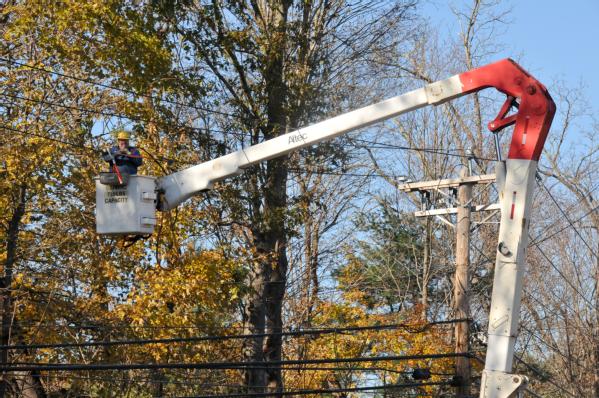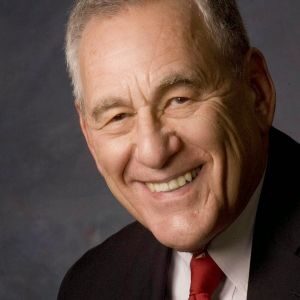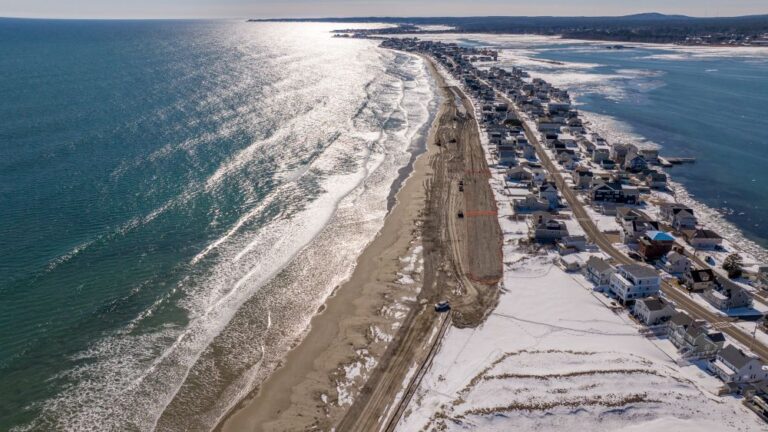In the last three months, three storms have blacked out tens of thousands of electric customers in New England.
Mayors can lose elections because of poor snow plowing, but can utility executives lose their jobs because of power outages?
The president of Connecticut Light & Power, the largest electric company in the Nutmeg State, found out. He was forced to resign after his company was slow to return homes to service and gave misleading information about when the lights would come on again following the Halloween storm.
His fate illustrates just how serious the problem of frequent storm-related outages has become.
Power lines are vulnerable. Usually breaking or grounding a single strand of relatively thin, bare wire is all it takes to cause an outage. Telephone lines are insulated, so they are far less vulnerable to breaking and can even support more weight than most local power lines.
Much depends on how well the power lines are maintained. Lines should be inspected regularly and trees trimmed to keep branches – broken off or weighed down with ice – off the lines.
Electric companies are supposed to inspect and maintain lines and receive allowances in their rates to pay for related costs. But if a utility does less than it should, the rates customers pay for line maintenance flow instead into company profits.
Some matters are beyond a utility’s control. When ice and freezing rain coat power lines, which seems to be happening more frequently, more outages occur than when it either rains or snows. Early in the winter season, before drivers have adjusted to slippery roads, cars may slide into utility poles, causing lines to fall.
Central Maine Power Company, Maine’s largest electric utility, has been ordered by the Maine Public Utilities Commission (MPUC) to carry out a five-year program of line inspection, tree trimming and pole testing.
The utility’s ability to boost its profits by limiting such efforts had actually been encouraged by the rate mechanism that the MPUC allows it. Under “incentive” rates, it gets to keep the gains from gaining greater efficiency or lowering its costs.
Why does CMP, recently allowed $1.4 billion to build new transmission lines, find itself in such a situation? Transmission is the high-voltage system, and lines are built in cleared corridors. But problems arise with lower voltage lines running along streets and roads.
There are several ways storm-related outages might be reduced.
The MPUC could step up its efforts to monitor the number and length of outages and set performance standards.
Customer complaints to the utility or to the MPUC help and are a useful way of highlighting persistent problems, so that remedial action can be taken. Utilities could be required to submit regular reports on complaints.
Lines could be replaced on a schedule, not constantly patched. In the historic 1998 ice storm when many out-of-state crews assisted in restoring service, they cited the unusual age of parts of the Maine system.
What about putting lines underground? The cost could be ten times as great as for aerial wires, and it would take decades to make the change. More reasonable might be the gradual conversion to insulated lines wrapped around cable, so-called “tree wire.” That, too, costs more, so an analysis of its cost as compared with the cost of outages could be a first step.
Like Connecticut, Massachusetts was hit hard by recent storms, and consumer anger has led to demands for laws to be changed to make it easier to form municipal utilities. Such utilities are responsible to their customers and do not make a profit from operating the wires, a monopoly service. Their rates are usually much lower than those of investor-owned utilities – IOUs.
Municipal utilities often have better storm performance than IOUs. They have no economic incentive to limit system maintenance to increase profits, and their management is subject to political, not regulatory, control.
Bay State law allows for creating municipal utilities, but gives IOUs veto power over the process. Because they do not want to give up any customers, the IOUs have blocked any new “munis” for decades.
The situation in Maine is similar to Massachusetts. The performance of municipal utilities in limiting storm-related outages is better than the IOU’s. That record is especially persuasive when it comes to comparing areas of similar density.
Two Maine munis – Kennebunk and Madison – share service territories with CMP. Outages in the muni areas are significantly less frequent and of shorter duration than in the adjoining CMP areas. In fact, in line with utility mutual assistance practices, they often send their repair crews to help out CMP.
As in Massachusetts, Maine law allows for new municipal utilities, but gives the IOUs veto power, even if they would be fully compensated for the loss of customers. While customers may now choose who supplies their power, they have no choice about whose wires are used to get it to them.
It is doubtful that the Maine Legislature will change that system, though it may be useful to keep an eye on events in Massachusetts. And, at the least, the MPUC could consider using muni storm-outage performance as a benchmark for CMP and other larger companies.







